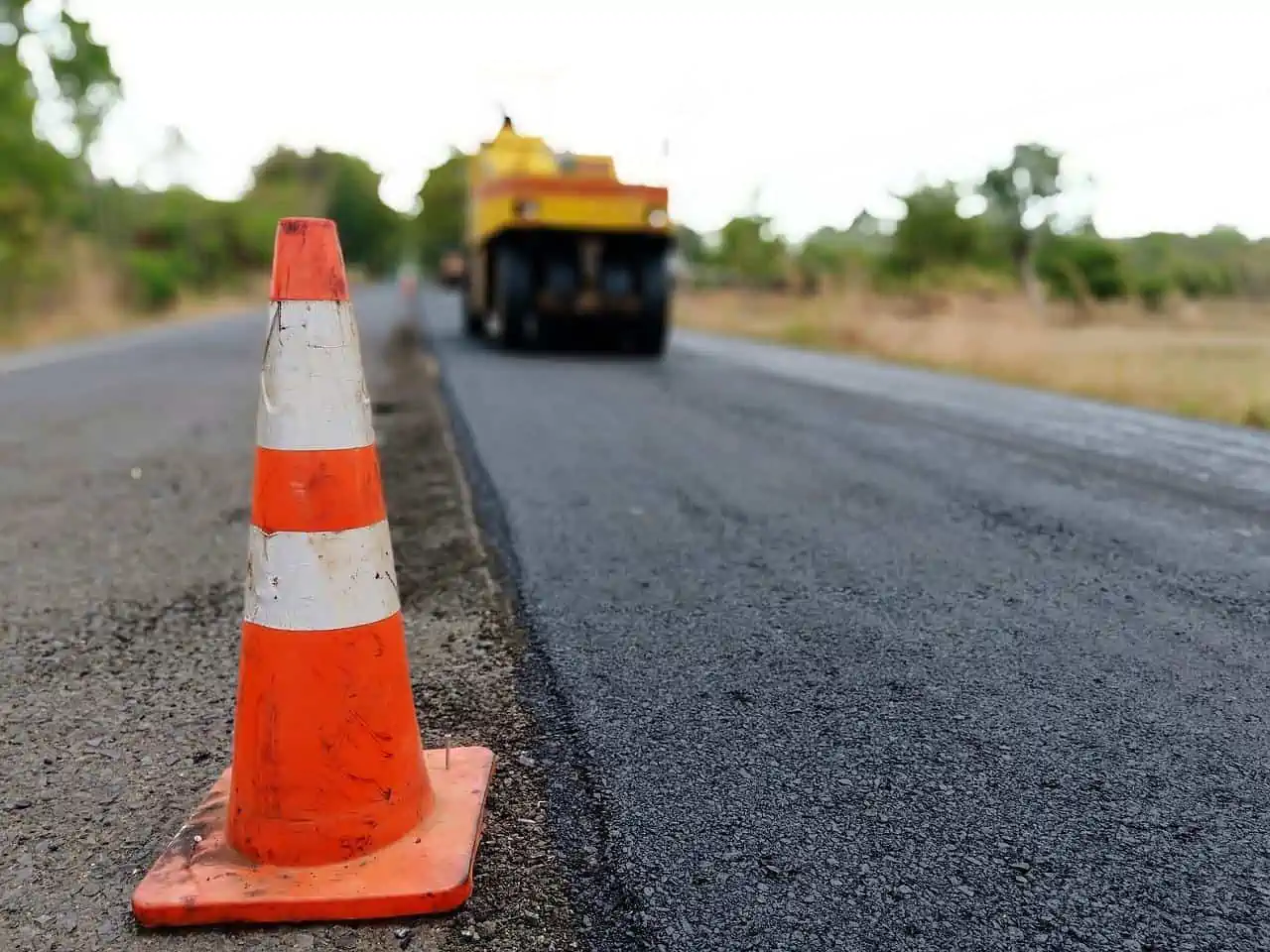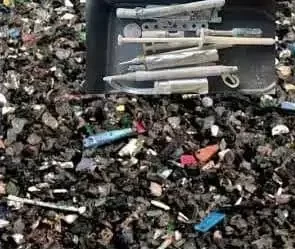Recycled materials road project in Clarington – delayed after toxic matter found in the mix – wins Project of the Year
Published May 26, 2023 at 10:03 am

A recycled materials road project in east Clarington that was the subject of third-party testing after a local resident found toxic materials in the mix has been named Project of the Year by the Ontario Public Works Association.
The Newtonville Road Rehabilitation with Recycled Materials Project, which used recycled materials such as crushed glass, plastic and polyethylene fibres to re-build a 3.6 kilometre stretch of road near the hamlet of Newtonville, won in the under-$2 million Transportation category.
The first phase of the project was completed in the fall of 2021 using conventional road rehabilitation methods and materials. Phase two in 2022 involved laying down a two-inch thick foundation of blue box materials in the road reconstruction process; reusing about 400 tonnes of recycled glass from blue box collections in the granular base, and approximately six tonnes of recycled plastics from blue box collections, and 4.5 tonnes of polyethylene terephthalate fibres made from recycled plastics in the asphalt.
The project was interrupted after a local resident discovered that some of the recycled material used in the project actually contained toxic materials such as decaying batteries, cell phone parts and syringes.
The Region put the job on hold and hired Malroz Engineering to take samples of the materials used in the road base to ensure they met the Region’s “expectations” as blue box materials. The Ministry of the Environment was also involved in the investigation.
Malroz dug 41 test pits, each about 50 metres apart, and did find objects that shouldn’t have been there, such as USB storage devices, vaporizer battery cartridges, chicken bones, wood debris, metal objectives, sunflower seeds, rubber parts, paper, metal springs and some organic decaying material.

Some of the materials found in the paving mix by a local resident
But the samples passed the detection limit test and Malroz said any leachate found also met the required criteria and was not considered “leachate toxic.”
Senior staff at the Region said the goal of the project was to look at ways to reduce the volume of aggregate materials mined and trucked in for road construction, while increasing the strength, durability and overall pavement life cycle of the road network.
Andrew Evans, Durham Region’s Director of Waste Management, called the pilot project the “future” of waste management. “Staff found a way to incorporate materials from blue box collections into road construction (and) receiving the Project of the Year award shows the impact that this type of project can have on the future of road construction while finding a new use for recycled materials.”
Ramesh Jagannathan, the Director of Transportation and Field Services for the Region, said the award was a testament to Durham’s “commitment to innovation” in looking at ways to reuse recycled municipal material, while also improving its environmental footprint. “This project is the first of its kind,” he said, and was carried out by studying the findings from more 60 years of experience with nearly 100 pavement trial sections around Canada. “This recognition promotes Durham Region as a leader in this industry.”
The Ontario Public Works Association Public Works Project of the Year Award was established to promote excellence in the management and administration of public works projects by recognizing the alliance between the managing agency, the consultant/architect/engineer, and the contractor who, working together complete public works projects.
insauga's Editorial Standards and Policies advertising





